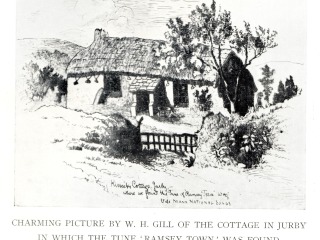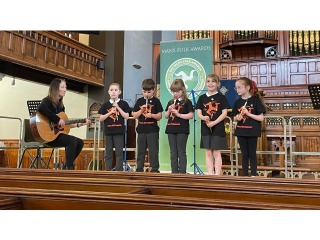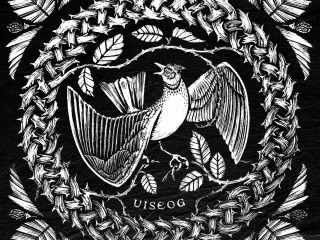MENU
30 Jan 2017
"Mr A.W. Moore’s collection is less altered than Mr Gill.”
So wrote Dr John Clague to Sophia Morrison in 1908, and yet A.W. Moore and his Manx Ballads and Music from 1896 seems now to be somewhat forgotten in the whirl of pieces here in KMJ about the Gill brothers, Dr John Clague, Sophia Morrison, Mona Douglas and other collectors active in the Island in the 1890s and afterwards. Manx Ballads and Music had a slow gestation due to the incompetency (as Moore saw it) of the Johnson Brothers of Douglas entrusted with its printing, and so inconsistencies seemed to have crept into the text and there are also a number of puzzles as such within its pages. For example, Moore lists his helpers in collecting the tunes and the number they each collected, and he gives the names of the singers and the tunes taken down from each one of them. One is then left to try and match the singers to the collectors to figure out oneself which singers were visited by Harry Bridson and Moore’s other helpers. But at least Moore did provide the basic information in the first place, it must be said. Then there is the lack of any alphabetical listing of either the texts or tunes that appear in the book, nor an index of first lines. This makes the work difficult to work with and one must produce indexes of one’s own to overcome this lack.
View Indexes and Working Guides to Manx Ballads and Music

'Ramsey Town - the Manx favourite sung with gusto island-wide'
23 Apr 2025
Read More...
Manx Folk Awards 2025 RESULTS
01 Apr 2025
Read More...
Little Red Bird - the island's most popular and well-travelled lullaby
31 Mar 2025
Read More...
Contact, Links, Acknowledgements, Privacy
© Culture Vannin. Culture Vannin is the trading name for the Manx Heritage Foundation, registered charity 333 in the Isle of Man. Designed by 3 Legs Ltd.